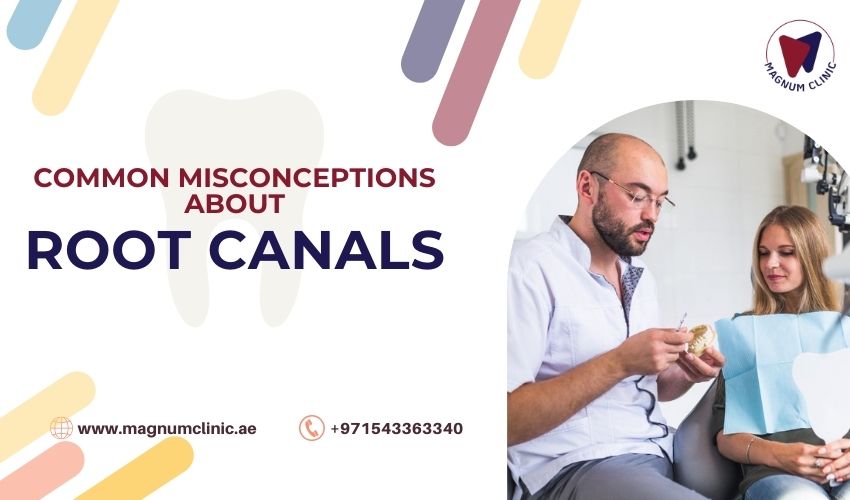Common Misconceptions About Root Canals: Debunking Myths and Misinformation

Root canals have long been a subject of dread and anxiety for many dental patients. The mere mention of a root canal often evokes fear and discomfort. However, much of this fear is rooted in misconceptions and misinformation. This article will debunk some common misconceptions about root canals and illuminate the truth behind this essential dental procedure.
Root canals have a reputation for being painful and unpleasant dental procedures. However, many beliefs and ideas about root canals are based on myths and misinformation. This article will separate fact from fiction and explore the truth about root canals.
Read Also: Signs And Symptoms For Root Canal
Myths About Root Canals
Myth 1: Root Canals Are Extremely Painful
One of the most common myths about root canals is that they are excruciatingly painful. Modern dental techniques and anaesthesia have made root canals relatively painless. Patients may experience discomfort, but it's usually no more than what accompanies a routine filling.
Myth 2: Root Canals Require Multiple Visits
Contrary to popular belief, most root canals can be completed in just one or two dental visits. Advances in technology and dental practises have streamlined the procedure, making it quicker and more efficient.
Myth 3: Root Canals Cause Illness
No scientific evidence links root canals to other health problems or illnesses. This myth has been thoroughly debunked, and root canals are considered a safe and effective dental treatment.
Myth 4: Extraction Is Always Better Than a Root Canal
Some people believe extracting a tooth is better than getting a root canal. However, preserving your natural teeth through a root canal is often the preferred choice as it maintains your dental health and avoids complications from missing teeth.
Myth 5: Root Canals Are Only for Severely Damaged Teeth
Root canals are not limited to severely damaged teeth. They can also treat teeth with deep cavities or infections that haven't advanced. Early intervention with a root canal can save a tooth from further damage.
Myth 6: Root Canals Are a Temporary Fix
Root canals are a permanent solution to dental problems when properly performed. With good oral hygiene and regular dental care, a tooth that has undergone a root canal can last a lifetime.
Myth 7: Root Canals Are Expensive
While root canals may seem costly, they are often more affordable than the alternative of tooth extraction followed by tooth replacement options like implants or bridges.
Myth 8: Root Canals Weaken Teeth
Root canals strengthen teeth by removing infection and preserving the natural tooth structure. Teeth that have undergone root canals can function just as well as healthy teeth.
Myth 9: Root Canals Are Unnecessary for Baby Teeth
Baby teeth play a crucial role in a child's development, and saving them through root canals can prevent dental problems and maintain proper oral function.
Myth 10: Root Canals Always Require Antibiotics
While antibiotics may sometimes be prescribed, not all root canals require them. The decision depends on the specific circumstances and the dentist's judgment.
Read Also: How Long Root Canal Procedure Take
Conclusion
Root canals are a valuable dental procedure that can relieve teeth and pain. By debunking these common myths, we hope to provide a clearer understanding of the benefits and importance of root canals in maintaining oral health.
FAQs (Frequently Asked Questions)
Are root canals painful?
Root canals are not as painful as they are often portrayed. Modern dental techniques ensure that the procedure is relatively painless.
Do root canals weaken teeth?
No, root canals strengthen teeth by removing infection and preserving the natural tooth structure.
Are root canals expensive?
While they may seem costly, root canals are often more affordable than tooth extraction and replacement options.
Can root canals be done in one visit?
Most root canals can be completed in just one or two dental visits.
Do root canals cause illness?
No scientific evidence links root canals to other health problems or illnesses.
